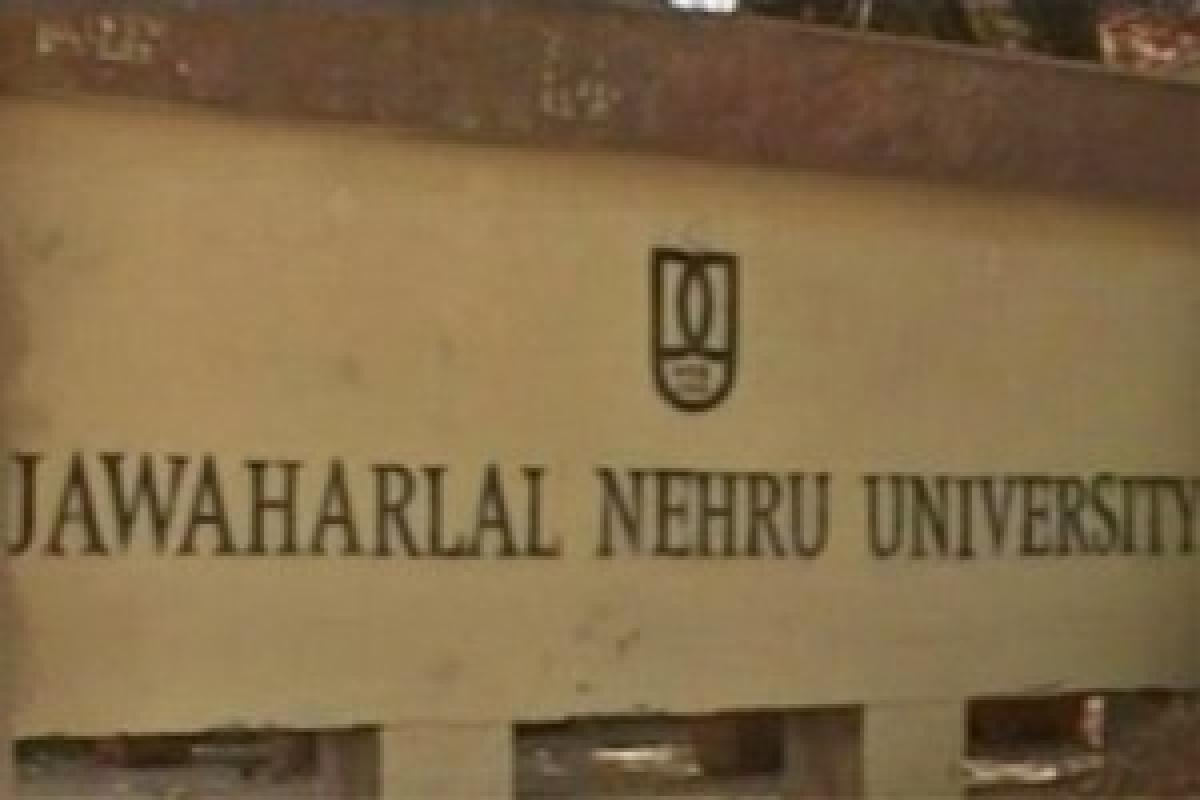Live
- GMR Airports Unveils AI-Powered Digital Twin Platform to Transform Airport Operations
- India poised to become leading maritime player: PM Modi
- Top Causes of Kidney Stones and How to Recognize Silent Symptoms
- India’s renewable energy capacity logs 14.2 pc growth at 213.7 GW
- Winter Session of Odisha Assembly adjourned sine die
- Biden calls Trump's tariff approach 'major mistake'
- After Drama Over Eknath Shinde’s Chief Minister Race, Maharashtra Cabinet Formation Faces New Tensions
- Egyptian FM, Blinken discuss recent developments in Syria
- Iran's supreme leader says Syria's developments result of US-Israeli 'plot'
- Elon Musk to Purchase $100 Million Luxury Mansion Next to Donald Trump's Mar-a-Lago, Report Reveals
Just In

Elite educational institutes like Jawaharlal Nehru University (JNU) should have no place for caste discrimination, but this prevails in an \"overt and covert\" manner in the varsity, BJP MP and chairman of parliament\'s Committee on the Welfare of Scheduled Castes and Scheduled Tribes Faggan Singh Kulaste has said.
New Delhi: Elite educational institutes like Jawaharlal Nehru University (JNU) should have no place for caste discrimination, but this prevails in an "overt and covert" manner in the varsity, BJP MP and chairman of parliament's Committee on the Welfare of Scheduled Castes and Scheduled Tribes Faggan Singh Kulaste has said.
"As a committee, most of us, if not all, were surprised with the complaints from teaching staff, others and students that caste discrimination continues in the premier university. We are deeply pained that the education system here is functioning on the exclusion of caste," Kulaste told IANS here in an interview.
He said the 30-member panel comprising 20 members from the Lok Sabha and 10 from the Rajya Sabha were surprised to find that among the teaching faculty and non-teaching staff, "none of the Scheduled Castes and Scheduled Tribes from JNU were sent for foreign training in the last three years".
He said the panel, which has members like D. Raja (CPI), Kariya Munda (BJP), Ramdas Athawale (RPI), Santokh Singh Chaudhary (Congress) and Pratima Mondal (Trinamool Congress), was of opinion that an "evaluation system" must be in place for checking the discrimination and to plug the dropout rates of the SC/ST students.
Kulaste said the parliamentary panel's study on JNU had nothing to do with the recent controversy as the committee visited the university campus on August 21, 2015.
"The study was made on the role of educational institutions, including universities, technical, medical and engineering, in socio-economic development of the SCs and STs and implementation of reservation policy in JNU".
Answering to a question, he said the committee proposes to visit other universities too in near future.
"In near future, we may visit other universities, including Aligarh Muslim University and the University of Hyderabad. But no dates have been finalised yet," he said.
With regard JNU vis-a-vis the complaints of discrimination, Kulaste said, often replies provided to the parliamentary panel were indicative of seriousness of the problem.
"Often they (JNU officials) told us either the SC-ST candidates do not apply or do not fulfill the essential criteria. These were just excuses and the committee was not convinced," he said.
"We work in consensus. The best part of our panel is to work as a team to help out our own communities, as members of this committee are derived from the Scheduled Castes and Scheduled Tribes alone," he said adding, party affiliations never come up during the committee's work.
"No one will work against his own community," Kulaste said.
However, he said the study was necessitated as there have been "increasing incidents" of caste discrimination and prejudices against the SC-ST communities, including teaching and non-teaching staff in educational institutions.
He said during on-the-spot study in JNU, it was found that the reservation policy for appointment of SC-ST candidates as assistant professor is in force since 1982. But by 2013-14, there were still 38 posts vacant.
However, the lawmaker from Mandla constituency in Madhya Pradesh said: "With the ongoing process of recruitment and positive responses, it is expected that at least 80 percent of the total reserved posts will be filled in next 10-12 months."
But as an individual MP, who has been in parliament since 1996, Kulaste said: "Only reservation policy is not enough to annihilate the hydra-headed monster of caste. Therefore, we have recommended that proper training and civic education to both teachers and students are provided to enhance the skill and competence level of the students."

© 2024 Hyderabad Media House Limited/The Hans India. All rights reserved. Powered by hocalwire.com







